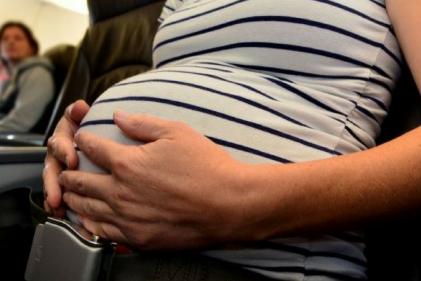Toxoplasmosis is a serious infection that can be life threatening for your unborn child. It is caused by a parasite known as toxoplasma gondii. The parasite reproduces in the intestines of cats and is then shed in their faeces. You can get the parasite by handling cat faesces, most likely in soil or cat litter. You can also become infected by eating undercooked or smoked/cured meats from animals that have been infected by the parasite.
This is an infection that isn't serious for you but could be very dangerous for your baby.
Whilst only 20% of woman in the UK are immune to toxoplasmosis before they begin their pregnancy the odds of contracting toxoplasmosis during pregnancy are quite low. It is estimated that only 1 in 500 (or around 150) pregnant women will be infected with it during their pregnancy. In cases where a woman has immunity, it is because she has been exposed to the infection before even though she may not have realised she was infected.
Symptoms appear around 2/3 weeks after you have been exposed to the infection and include headaches, aches and pains, fatigue and flu-like symptoms. The chances of it being passed onto the baby depends on what stage of pregnancy you are at when you become infected.
It is very easy to avoid infection. If you pick it up early in pregnancy, your baby is less likely to be infected but is likely to be more damaged by the infection. If you pick up the infection late in your pregnancy, your baby is likely to be infected however they are less likely to suffer damage. Possible outcomes to infection include stillbirth, miscarriage, hydrocephalus, brain damage or damage to the organs. Most babies born with toxoplasmosis have no obvious damage at birth. Some develop symptoms in the first year, including eye infections and hearing difficulties.
If you are concerned that you have been exposed to the infection, your GP can do a blood test that will establish whether or not you are immune. If you have antibodies present in your blood, this could be from a previous infection or a recent one and it will mean you need to take an antibiotic which will reduce the risk of your baby being infected. If you have no antibodies, it means you are not immune but also means you do not have toxoplasmosis – your doctor may decide to repeat your blood tests again some weeks after the initial test..
Fortunately, it's possible to prevent infection by following some simple steps (see below).
- Do not eat cured or smoked meats such as salami or Parma ham
- Do not drink unpasteurised milk or anything made from it e.g. cheese
- Wash hands before eating, preparing or handling food
- Wash hands after touching raw meat
- Never eat undercooked meat which are pink or red in the centre as the parasite may not be killed during the cooking process
- Ensure all ready meals and meats are properly chilled and cooked thoroughly before eating them.
- Wash hands and nails thoroughly after being out in the garden.
- Wear gloves when touching sand or soil
- Always wear gloves when coming into contact with high risk areas for cat faeces e.g. litter trays – better still ask someone else to look after the cats litter tray during your pregnancy.










